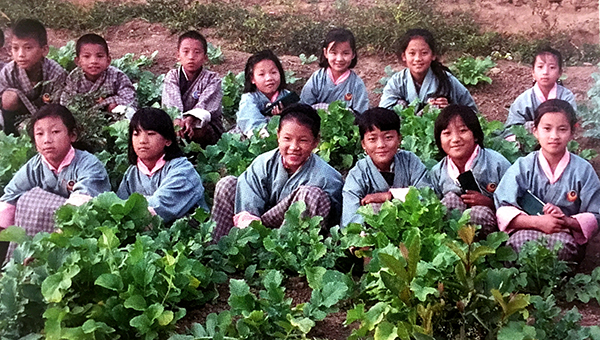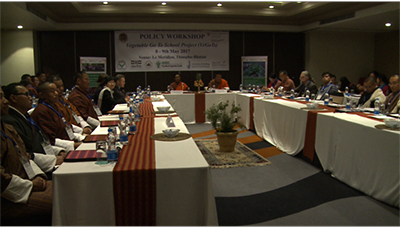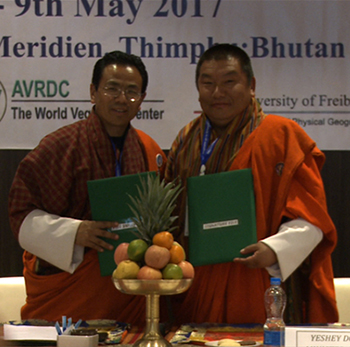 Malnutrition is a big challenge for developing countries including Bhutan. A solution to this problem has been the integrated approach of linking school agriculture programme with the WASH or water, sanitation and hygiene initiative and nutrition education.
Malnutrition is a big challenge for developing countries including Bhutan. A solution to this problem has been the integrated approach of linking school agriculture programme with the WASH or water, sanitation and hygiene initiative and nutrition education.
Vegetables Go to School or VeGoTS project was initiated in 35 local schools in 2013. It is a project which integrates the School Agriculture programmes with the WASH.
Research findings of the VeGoTS project were shared at a policy workshop in the capital, yesterday.
Although Bhutan had already started agricultural programmes in schools since 2000, agriculture, nutrition and WASH subjects were taught separately. Integrating them has been found to be more effective.
“If they work together, they can actually correlate each other’s activities and have more impact. For example if a school has a nutrition problem of anaemia, agricultural teachers can advise to grow more green vegetables like spinach. Now the WASH people can come in and advise the teachers that the vegetables harvested from the fields has to be thoroughly washed,” explained the Project Manager of VeGoTS Project, B. B. Rai.
According to the research, the project was found to be successful in 90 percent of the enrolled schools, not only in providing nutrition, but also educating the students and the community.
Of the many recommendations shared to the audience, one of them is to introduce the integrated approach as a curriculum in the primary schools.
“At the moment we have a curriculum on agriculture for classes 9 to 12. But below class 8, it is still a club activity. And this club activity is not impactful. So we have requested that even the primary schools can take up these integrated approach not only as a club but as a curriculum.”
The education and agriculture ministers also signed a commitment letter promising to provide continued support towards implementing the integrated approach.
A policy brief and three technical booklets were also released at the event.










